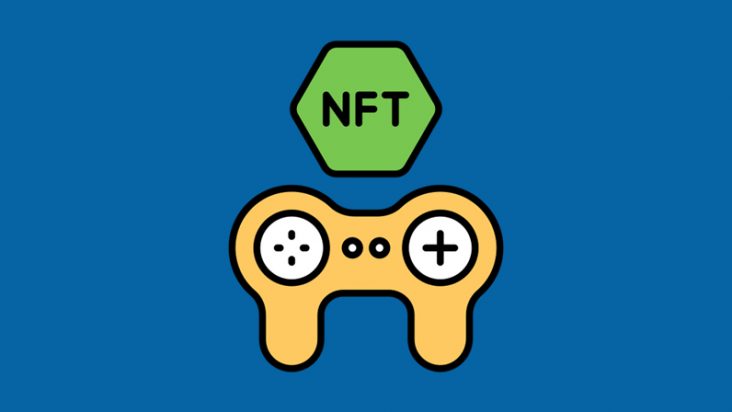

Ludomania, also known as gambling addiction, is a psychological disorder characterized by an uncontrollable urge to engage in gambling activities, despite negative consequences. This compulsive behavior often leads to significant personal, familial, and societal issues.
Gambling addiction is a significant social issue in countries where gambling is deeply integrated into the culture and economy. Regions like Macau, the United States, Australia, and parts of Europe have highly developed gambling industries, making them hotspots for both recreational gambling and addiction-related challenges.
Here are some key statistics and insights:
- Global Perspective: The World Health Organization (WHO) reports that the global revenue from gambling is projected to reach $700 billion by 2028, indicating the extensive reach of gambling activities worldwide.
- United States: Data Bridge Market Research notes that over 80% of American adults have engaged in gambling activities at some point, highlighting the widespread nature of gambling in the U.S.
- Europe: The European online gambling market is expected to grow significantly, with projections indicating an increase from $52.30 billion in 2024 to $88 billion by 2029, reflecting a compound annual growth rate (CAGR) of 11.01%.
- Australia: Australia is known for its high gambling participation rates. In 2024, the online gambling market in Australia is estimated at $4.93 billion, with expectations to reach $5.47 billion by 2029, growing at a CAGR of 2.1%.
- United Kingdom: The UK has a well-regulated gambling industry. In 2024, the revenue from the online gambling sector is projected to be substantial, with further growth anticipated in the coming years.
These statistics underscore the extensive reach and economic impact of gambling in these regions, which correlates with the prevalence of gambling-related issues, including addiction.
Understanding Responsible Gambling
Responsible gambling refers to a set of social responsibility initiatives by the gambling industry to ensure the integrity and fairness of their operations, while promoting awareness of the potential risks associated with gambling. The primary goal is to provide a safe environment where individuals can enjoy gambling as a form of entertainment without experiencing harm.
Key principles include preventing underage gambling, ensuring the privacy and security of players, providing transparent information about games and their odds, and offering support for those who may develop gambling-related problems.
The Role of Operators in Minimizing Risks
Operators are at the forefront of implementing responsible gambling measures. Their responsibilities encompass several critical areas:
- Policy Implementation: Establishing and enforcing policies that promote responsible gambling, such as self-exclusion programs and deposit limits.
- Employee Training: Ensuring that staff are trained to recognize signs of problem gambling and can guide players to appropriate support services.
- Game Design: Developing games that are fair and transparent, with clear information on odds and potential risks.
- Advertising Standards: Marketing their services in a way that does not exploit vulnerable individuals or encourage excessive gambling.
Measures Implemented by Operators to Prevent Gambling Addiction
Setting Betting and Loss Limits
Operators provide tools that allow players to set personal limits on the amount of money they can wager or lose within a specific timeframe. This proactive measure helps individuals manage their gambling activities and avoid significant financial losses. For example, some platforms enable players to set daily, weekly, or monthly deposit limits, ensuring they gamble within their means.
Self-Control Tools: Self-Exclusion and Time-Outs
- Self-Exclusion: This feature allows players to voluntarily exclude themselves from gambling activities for a predetermined period, ranging from days to years. It serves as a crucial tool for individuals recognizing the need to take a break from gambling to regain control.
- Time-Outs: Short-term breaks that players can initiate, allowing them to step away from gambling for a brief period, such as 24 hours or a week. This helps in preventing impulsive behavior and encourages responsible decision-making.
Developing Algorithms to Detect Risky Behavior
Advancements in technology have enabled operators to utilize artificial intelligence (AI) and machine learning algorithms to monitor player behavior in real-time. These systems analyze patterns such as frequency of play, bet sizes, and time spent gambling to identify indicators of problem gambling. When risky behavior is detected, operators can intervene by sending warning messages, offering self-assessment tools, or directing players to support services.
Technologies and Innovations in Addressing Gambling Addiction
As gambling continues to grow globally, the need for technological advancements to combat gambling addiction has become increasingly important. Various countries, including Brazil, have begun adopting new technologies and innovative approaches to better monitor gambling behaviors, ensuring that operators can minimize the risks and provide safer environments for players. In this context, Brazil has been at the forefront of implementing modern solutions, such as artificial intelligence (AI) and cutting-edge transaction transparency methods, to fight against gambling addiction.
Artificial Intelligence for Player Behavior Analysis
In Brazil, artificial intelligence (AI) plays a significant role in identifying and analyzing player behavior to detect signs of addiction. AI systems are being used by gambling operators to track betting patterns such as frequency, size of wagers, and duration of gameplay. When unusual patterns indicative of problem gambling are detected, operators can intervene by offering support, resources, or implementing self-exclusion tools. This proactive approach aims to reduce the likelihood of addiction and help players manage their gambling habits.
Use of LED Technology for Transaction Transparency
Though the use of LED technology specifically for transaction transparency in gambling is still an emerging concept, Brazil has implemented comprehensive regulations aimed at increasing financial transparency in the gambling sector. For instance, gambling operators are required to operate under authorized domains (.bet.br) to ensure secure and legitimate transactions, preventing fraud and other illegal activities. These measures help provide players with confidence that their financial transactions are protected, thereby reducing the risks associated with gambling.
Role of Governmental and International Organizations
The regulation of gambling and the support of international organizations are crucial components in ensuring responsible gambling practices. In many countries, including Brazil, legislative measures have been enacted to prevent gambling addiction, protect consumers, and maintain the integrity of the gambling industry. Moreover, partnerships between operators and governmental organizations help create a safer environment for players and ensure the implementation of strict responsible gambling policies.
Legislative Regulation of Gambling
Brazil has introduced a comprehensive regulatory framework aimed at improving transparency and consumer protection in the gambling sector. Key regulatory measures include facial recognition systems to verify the identity of players, preventing underage gambling and ensuring only authorized individuals engage in betting activities. The government has also set up a centralized Betting Management System (Sigap) to oversee and monitor all gambling activities, ensuring compliance with the country’s regulations.
Examples of Successful Cases in Various Countries
Globally, several countries have set successful examples of addressing gambling addiction through legislation and technology. In the UK, the Gambling Commission enforces strict regulations, requiring gambling operators to implement responsible gambling measures, such as self-exclusion programs. Sweden has implemented a national self-exclusion register called Spelpaus, which allows individuals to exclude themselves from all licensed gambling operators. These initiatives have been successful in promoting responsible gambling and reducing harm associated with gambling addiction.
Partnerships Between Operators and Government
In Brazil, collaboration between gambling operators and government organizations plays an essential role in ensuring responsible gambling practices. The Brazilian Institute of Responsible Gaming (IBJR) works closely with operators to promote fairness, prevent fraud, and ensure that the industry adheres to established regulations. This partnership helps create a transparent and safe gambling environment for consumers, ensuring that gambling remains a form of entertainment rather than a harmful addiction.
By combining technological innovations and strong partnerships between operators and government bodies, Brazil and other countries are taking significant steps toward minimizing the risks associated with gambling addiction and ensuring that the gambling industry remains both responsible and sustainable.
The Path Forward in Responsible Gambling
Addressing the challenges posed by gambling addiction requires a multifaceted approach that involves both technological innovations and robust regulatory frameworks. The efforts of operators, governments, and international organizations have made significant strides in reducing the risks associated with gambling through responsible gambling practices, education, and technological advancements.
From AI-powered behavior monitoring to legislative measures designed to protect consumers, the gambling industry is evolving to provide a safer environment for players. The adoption of tools like self-exclusion systems, responsible gambling limits, and transparent transaction methods helps foster accountability and reduce harmful behaviors. Moreover, the role of educational initiatives and public awareness campaigns is critical in ensuring that players are equipped with the knowledge to make informed decisions.
Global examples from countries such as the UK, Sweden, and Brazil illustrate the power of collaboration between operators, governmental bodies, and international organizations in creating a responsible gambling ecosystem. By continuing to innovate and adapt, the gambling industry can further mitigate the risks of addiction and ensure a safer, more responsible future for all players.








